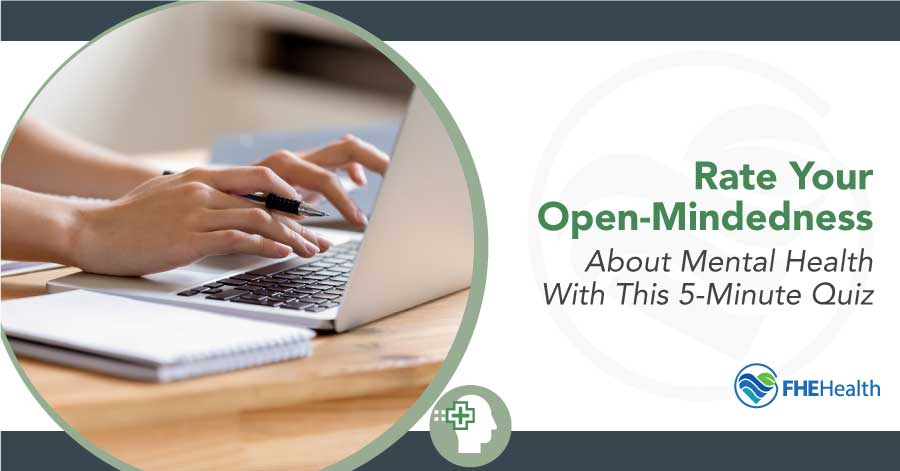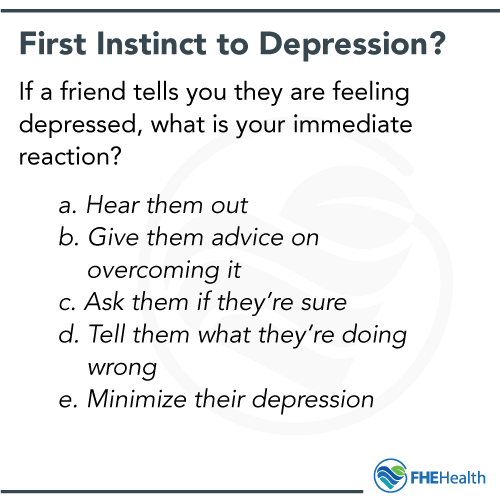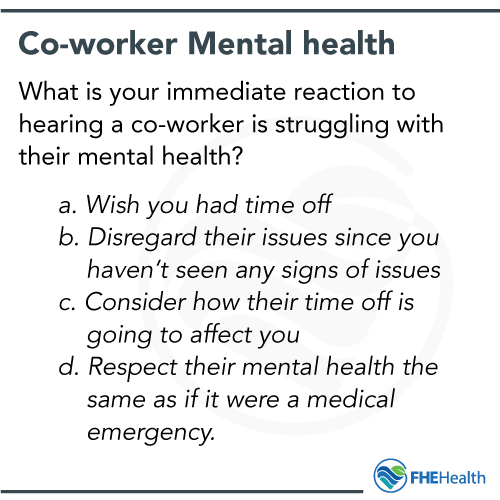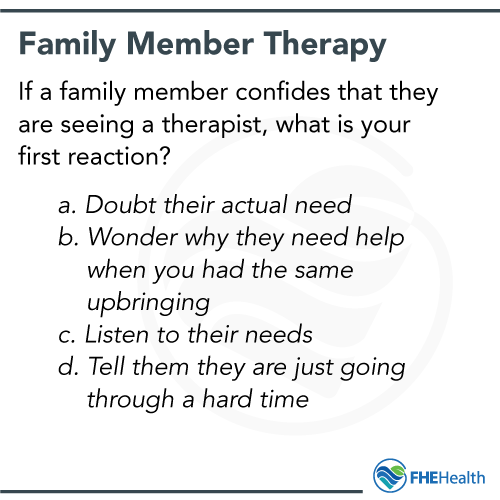
Mental illness has long held a stigma. Far too many people believe that mental illness isn’t as legitimate or real as physical illness, even though science has proved time and time again that this isn’t the case. Over the last decade, the medical community, celebrities and even music, movies and TV shows have made an effort to reduce the stigmas associated with mental health. However, there’s still a lot of work to be done.
As societal perceptions change, more people are trying to be accepting of mental health challenges in the same way as physical ones. However, there are still some stumbling blocks on the road toward acceptance, and unconscious biases aren’t uncommon.
This five-minute quiz can help you determine your own internal feelings on mental illness. Being honest may not be easy, but the more truthful you can be about your emotions, the better positioned you will be to change your mindset for the better.
1. If a friend confides in you that she feels depressed, what is your first instinct?
 As a good friend, you should be as supportive as possible when someone opens up to you to discuss their struggles. However, it’s common for depression to be generalized as “lots of sadness” rather than a serious and sometimes debilitating mental condition.
As a good friend, you should be as supportive as possible when someone opens up to you to discuss their struggles. However, it’s common for depression to be generalized as “lots of sadness” rather than a serious and sometimes debilitating mental condition.
If your first thought is to tell her that she’s just having a hard time, she just needs a change in scenery or she just needs to exercise more, you may be downplaying the severity of depression. Using the term “just” — a frequent practice for those who aren’t well-versed in depression — minimizes the severity of the condition. Treating depression like some passing sadness can make those living with depression feel sad or ashamed, furthering stigmas and making it harder to admit help is needed.
Instead of rushing to judgment, tell your friend how sorry you are to hear that she has been struggling. Ask if there is anything you can do to help, and let her know you’re available whenever she needs to talk.
2. If a coworker mentions taking a few days off work due to a mental health issue, how do you feel?
 Everyone gets sick from time to time, and that’s not just limited to physical illness. In some cases, mental illness can require time off work or other obligations, too.
Everyone gets sick from time to time, and that’s not just limited to physical illness. In some cases, mental illness can require time off work or other obligations, too.
If your first instinct was to judge the circumstances or deem mental health as a less worthy reason to miss work, it’s time to reconsider your personal perceptions. Getting help for any kind of illness can usually be accommodated in the workplace.
If a coworker needs to take time to see a doctor or enter a treatment program, treat them with the same respect you would someone who needed an outpatient medical procedure, for example. Both mental and physical disorders affect health, and there’s no reason to differentiate between the two. Mental health treatment is even included in the American with Disabilities Act, requiring a workplace to accommodate needs.
3. If your sibling confides that he has been seeing a therapist to deal with anxiety following stressful life events, how do you react?
 Some people think of mental illness as a reality of life — but one that affects others. Seeing mental health challenges hit so close to home can be disorienting and hard to accept, particularly in very close family members you have known for a long time. Your first instinct may be to brush your brother off or tell him he’s just having a hard time, but this can be very damaging for a loved one to hear.
Some people think of mental illness as a reality of life — but one that affects others. Seeing mental health challenges hit so close to home can be disorienting and hard to accept, particularly in very close family members you have known for a long time. Your first instinct may be to brush your brother off or tell him he’s just having a hard time, but this can be very damaging for a loved one to hear.
Admitting the need for help isn’t easy for some people. Stigmas are changing, but many people will judge someone for getting help. This kind of judgment can negatively affect ongoing treatment. For those who value the opinions of friends and family members, a critical response to a confession about therapy may be enough to deter progress indefinitely.
Even if it’s hard to accept that a sibling or other close relationship is living with mental illness, being supportive is absolutely essential. Tell your brother you are glad he is taking care of his mental health and offer whatever support he needs.
4. When a friend tells you that he has just been diagnosed with bipolar disorder, what is your natural response?
Depression and anxiety are fairly commonplace — around 40 million adults have anxiety disorders — and well understood. However, less common mental disorders, like bipolar disorder or schizophrenia, aren’t as familiar to the general population and, accordingly, can be concerning or even frightening to some.
If your first instinct is to hesitate, become afraid or change your opinion of your friend — don’t. Something like bipolar disorder isn’t a choice; it’s a health condition just as valid as physical challenges. Treat your friend with the same compassion you would as if he had been diagnosed with any other illness.
It’s okay to ask questions about the diagnosis and what it means, but take time to do your own homework. It’s not unusual to fear things that are unknown or foreign, so education can make a difference.
Improving Perceptions of Mental Health
If you find that you have some implicit biases related to mental health, it’s important to be proactive. Accepting common stigmas can be damaging, harming the ways in which those with mental disorders approach treatment. Instead of allowing popular perceptions to change your mindset, you can take time to adjust your expectations and embrace a healthier perspective.
- Do your homework: Read about different kinds of mental illness, including both scientific publications and anecdotes and stories.
- Learn about therapy techniques: Therapy is about more than talking out problems. Explore the different kinds of therapies and how they can influence treatment.
- Research how medication can make a difference. Contrary to some beliefs, taking medication isn’t the easy way out and can make a huge difference for many people.
- Listen. If your friends or family members are struggling, don’t rush to judgment. Listen to what they have to say and do your best to process their unique struggles in an unbiased manner.
- Be open. If your friend opens up with concerns about mental health, don’t tiptoe around the subject or treat it like a shameful secret.
The stigmas surrounding mental health are starting to wane, but far too many people either don’t believe in the legitimacy of mental illness or believe those with mental illnesses are lesser. These quiz questions can help you process your own perceptions and help you work to be a more open-minded and accepting person.






